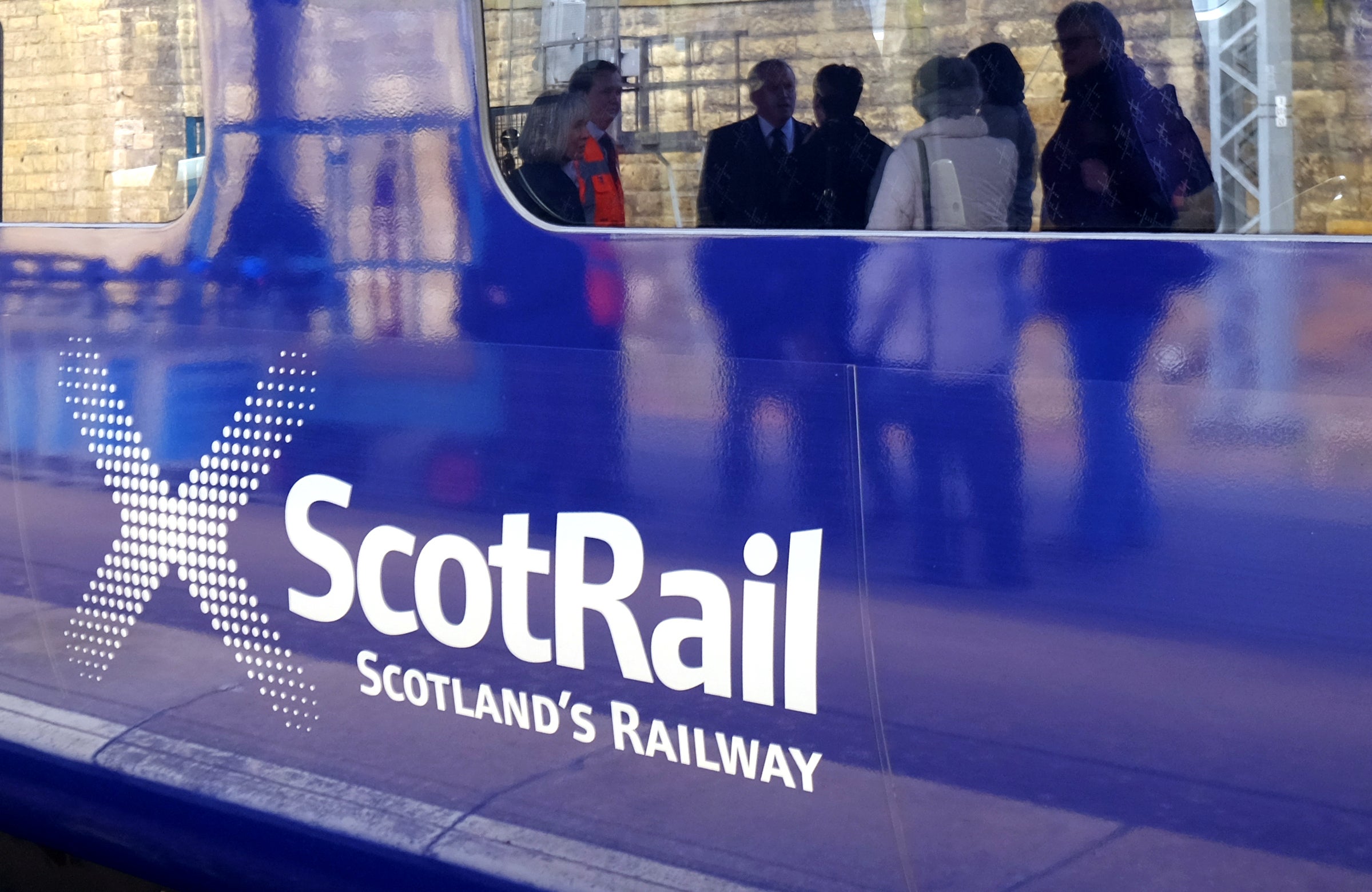Train driver demands for 10% pay rise ‘unsustainable’, says Scotrail boss
ScotRail service delivery director David Simpson said ‘compromise’ between all parties will be needed.

Your support helps us to tell the story
From reproductive rights to climate change to Big Tech, The Independent is on the ground when the story is developing. Whether it's investigating the financials of Elon Musk's pro-Trump PAC or producing our latest documentary, 'The A Word', which shines a light on the American women fighting for reproductive rights, we know how important it is to parse out the facts from the messaging.
At such a critical moment in US history, we need reporters on the ground. Your donation allows us to keep sending journalists to speak to both sides of the story.
The Independent is trusted by Americans across the entire political spectrum. And unlike many other quality news outlets, we choose not to lock Americans out of our reporting and analysis with paywalls. We believe quality journalism should be available to everyone, paid for by those who can afford it.
Your support makes all the difference.Train drivers’ demands for a pay increase of around 10% are “not sustainable”, a ScotRail boss said as he urged “compromise” with unions.
ScotRail’s reduced timetable began on Monday morning, with more than 700 services cut across the country.
It is due to an ongoing dispute between the nationalised train service and the Aslef union, whose members are refusing to work overtime and on rest days, resulting in a third of daily services being halted.
The demands of 10% to 11% are just not sustainable in the current economic climate with the railway
Transport Minister Jenny Gilruth said the reduced timetable will provide greater certainty for commuters as she told BBC Radio Scotland’s Good Morning Scotland programme there were 349 cancellations on Sunday, with 440 services affected.
ScotRail service delivery director David Simpson told the BBC programme that compromise will be required on both sides of the negotiating table.
“We need to sit down and talk against the background where everyone is clear there will need to be a compromise,” he said.
“The demands of 10% to 11% are just not sustainable in the current economic climate with the railway.
“We need to find a way around that. We need to recognise the kind of demands the unions are making but also the need to demonstrate taxpayer value.”
ScotRail drivers typically earn more than £50,000 a year and a 2.2% pay increase was offered, with the opportunity to take part in a revenue share agreement which would take the total package to 5%.
Aslef, however, rejected the offer, calling it “derisory”.
Mr Simpson said the offer was a “good one” and would have “gone a long way” to resolving the issues raised by the union.
Ms Gilruth also told the radio show that compromise is essential to resolving the dispute.
The minister met ScotRail bosses on Friday to discuss the ongoing cuts.
But she said she could not put “put a number on” a reasonable pay offer” as the decision must be left up to ScotRail and Aslef to negotiate.
At the weekend, Employment Minister Richard Lochhead urged people to be “sensible” over pay rises amid the cost-of-living crisis.
Echoing his comments, Ms Gilruth said: “The country at this moment in time is facing a cost-of-living crisis that’s really hitting some of our poorest paid workers the hardest, and I think that we need to recognise that as a Government and see what more support we might be able to provide – so there are challenging times ahead no doubt in this regard.
“However I’m absolutely committed to working ScotRail and our trade unions to make sure that nationalisation of our railways working for Scotland’s travelling public.”
Earlier in the Good Morning Scotland programme, Aslef Scottish organiser Kevin Lindsay called for more talks with ScotRail to reach a “sensible settlement”.
This is damaging Scotland's economy
He said: “I’m desperate to get round the negotiating table but I can’t negotiate with myself.
“I need somebody from ScotRail or Transport Scotland to come along with the authority to make a deal so we can move forward because this is damaging Scotland’s economy, it’s damaging our cultural events, we really need some action on this to move this forward.”
He said: “I appreciate other sectors and other workers may not be on the same salaries or may not be making the same demands, but this isn’t a race to the bottom – my job is to protect the terms and conditions of train drivers, and train drivers are telling me quite clearly they are looking for a sensible settlement that we can actually move forward on to deliver for the passengers of Scotland.”